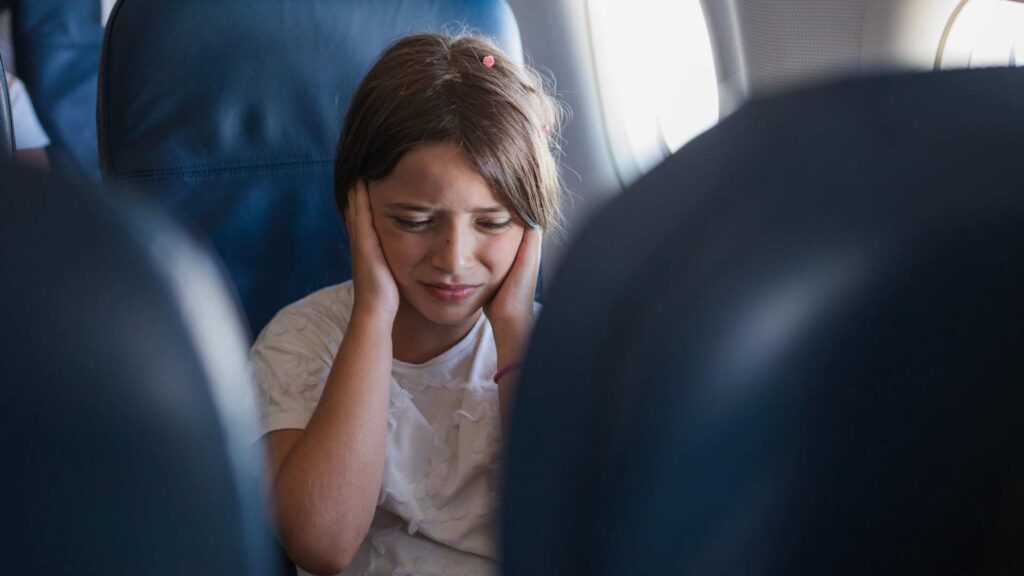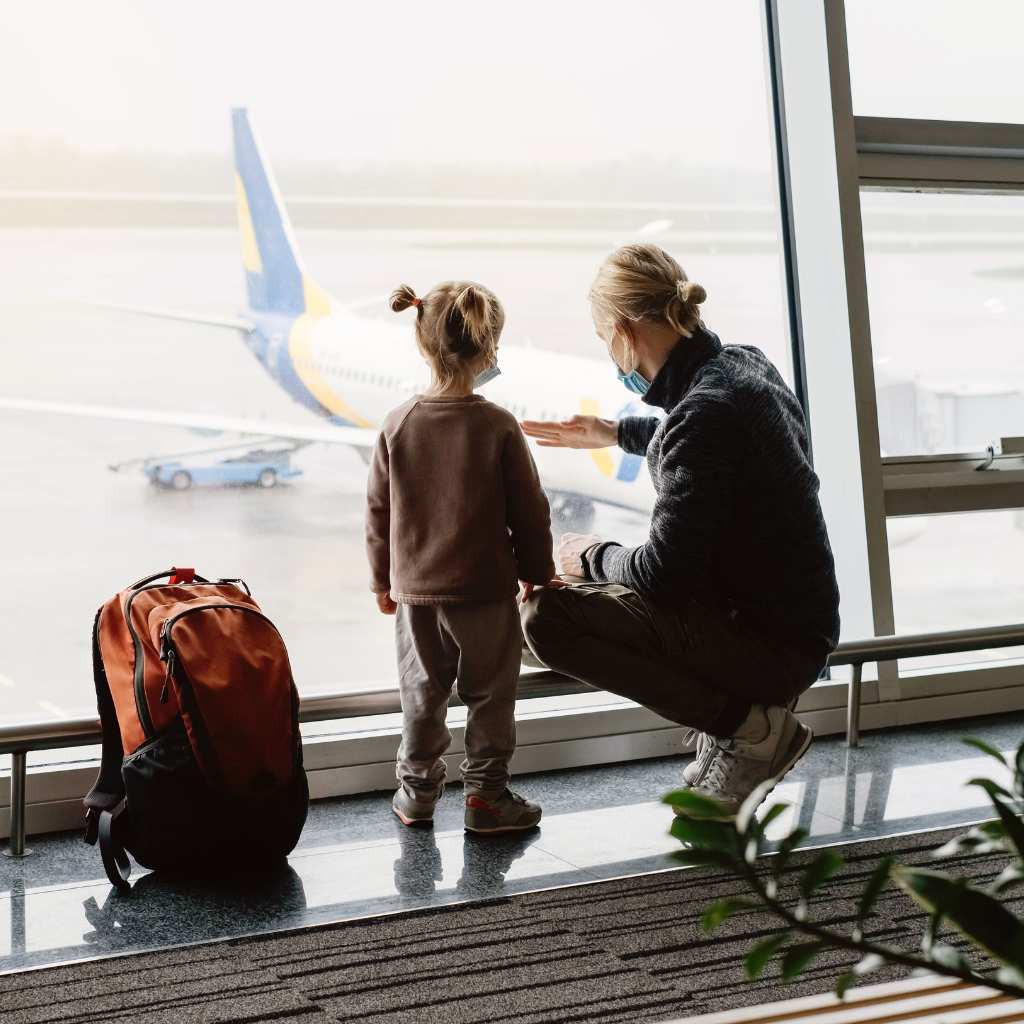Tabla de contenido
Do people with autism struggle with traveling?
The idea of summer vacation often brings up images of packed suitcases, sandy beaches, theme parks, or long road trips. For many families, it’s a season full of joy and spontaneity. But for parents of personas neurodiversas, traveling with autism can come with a different set of expectations. While every child deserves the chance to explore new places and make summer memories, neurodiverse families often need a thoughtful and tailored approach to make these experiences enjoyable for everyone.
For individuals with autism, routine and predictability often play a crucial role in feeling safe and regulated. Summer, with its change in pace and frequent breaks from school or therapy, can be both an opportunity and a challenge. Sudden changes in schedule, unfamiliar environments, and sensory overload during travel can spark anxiety and behavioral responses, making what’s meant to be a relaxing escape feel overwhelming.
With the proper preparation, a little creativity, and support from therapies like ABA, families can turn traveling with autism into an empowering and fulfilling experience. In this blog from ABA Centers of New Jersey, we’ll explore how summer travel affects individuals with autism, the everyday challenges they may face, and practical strategies that help make vacations more successful and less stressful.
Understanding the Impact of Summer Travel with Autism

Travel with autism can have significant impacts on neurodiverse individuals, but it primarily begins when their structure and routine change. So, when summer break may offer freedom from rigid school routines, and kids can’t wait for the summer to arrive, it also removes the predictability that many children with autism rely on to feel secure.
Travel also brings an influx of sensory input: crowded airports, loud announcements, unfamiliar smells, car rides with bumps and stops, the feel of hotel sheets, or even the smell of a new place. Children with autism spectrum disorder (ASD) often experience heightened sensitivity to sensory stimuli, making these changes incredibly uncomfortable and, for some, even unbearable.
Moreover, communication challenges can make it harder for some children to express what’s wrong. Instead, they may react through behaviors like meltdowns, withdrawal, or resistance, which others may misunderstand as misbehavior rather than signs of distress.
So, do I need to stay at home because of my kid with autism? Not at all! Families can participate in wonderful activities together, including celebrating birthdays, enjoying holidays, and planning summer vacations. The key is to understand the unique needs of your loved one and prepare effectively!
In this guide from the ABA Centers of New Jersey, we outline essential considerations before the trip, what to do during traveling, and what to avoid.
What to Know Before Traveling with Autism
Preparation is everything. Before hitting the road or boarding a plane, consider these foundational tips that can reduce anxiety and improve the travel experience for everyone:
- Plan Ahead: Choose autism-friendly destinations, look for accommodations with flexible policies, and ensure there are quiet spaces available.
- Start Small: If your child has never traveled, begin with short trips close to home to gauge their reactions and needs.
- Create a Visual Schedule: Use visual aids to show your child where you’re going, what you’ll be doing, and when you’ll return.
- Practice Transitions: Take practice drives or visit an airport to reduce the fear of the unknown.
- Pack Comfort Items: Bring favorite snacks, sensory tools, noise-canceling headphones, and familiar toys to help soothe and regulate emotions.
Strategies for Managing Summer Travel and Autism
Here are more targeted strategies for families navigating travel and autism, especially during the unpredictable summer months:
- Engage During Waiting Times: Have a tablet loaded with favorite shows or games. Use these during layovers or delays to keep your child occupied and distracted.
- Traveling by Plane: Prepare your child for airport security, the sensation of takeoff, and long waiting times. Some airlines even offer mock boarding experiences that allow neurodivergent children to practice getting on a plane without the pressure of a real trip. Check Autism Flies events to practice boarding.
- Trip by Car: Plan regular stops for car rides, keep the atmosphere calm with favorite music or audiobooks, and ensure that snacks, comfort items, and sensory tools are easily accessible.
- Stick to a Routine When Possible: Even if the location changes, try to keep meal times, bedtimes, and daily rituals consistent.
- Explain the Trip Clearly: Use simple language, pictures, or storyboards to let your child know what to expect.
- Prepare for Delays and Downtime: Bring activities and entertainment for unexpected waits or travel hiccups.
- Provide Choices: Offering small decisions (“Do you want to bring the blue toy or the green one?”) helps your child feel in control.
- Use Positive Reinforcement: Celebrate small successes and reward your child for adapting to new situations.
Things to Avoid When Traveling with a Child on the Spectrum
While traveling with autism requires flexibility, there are also common pitfalls families should avoid:
- Avoid Overloading the Schedule: Too many activities in one day can lead to exhaustion and meltdowns.
- Don’t Skip Meals or Sleep: Hunger and fatigue are significant triggers for behavioral issues in children with ASD.
- Avoid Unfamiliar Foods Without Backup: Always bring familiar foods to avoid distress or dietary issues.
- Don’t Assume Staff Understand Autism: Advocate for your child and explain their needs when necessary.
- Avoid Public Pressure: Try not to feel judged by others. Focus on your child’s well-being rather than outside opinions.
The Role of ABA Therapy in Preparing for Travel
La terapia ABA doesn’t just help children with autism in academic or home settings. It can also be instrumental in preparing for real-world experiences like travel. ABA therapists can work with families to teach coping strategies, introduce transition tools, and role-play potential travel scenarios.
En ABA Centers of New Jersey, we customize ABA therapy programs to fit each child’s specific goals and needs, including teaching them to build the skills necessary for community engagement, transitions, and handling changes in routine.
Therapists might work on skills like:
- Waiting in line
- Following multi-step directions
- Tolerating new environments
- Managing sensory input
- Using coping strategies like deep breathing or requesting a break

These skills make traveling with autism more accessible and empower children to feel more confident and in control.
Supporting Families Throughout Every Stage of Life
En ABA Centers of New Jersey, we are proud to help families prepare for all life moments—including summer vacations. We understand that traveling with autism isn’t always easy, but with guidance and tools, it can become more manageable.
Our ABA therapy services help families across the Township of Franklin, Township of Monroe, Perth Amboy, Parsippany, Morristown, Township of Roxbury, Cherry Hill, Trenton, Woodstown, East Hanover, Dover, Paterson, East Brunswick, Princeton, Hoboken, Clifton, Bridgewater, Woodbridge, and more areas build stronger communication, social skills, emotional regulation, and independence.
We also offer parent training and guidance to ensure families feel equipped before, during, and after travel. Ready to create summer memories with your family while meeting your child’s needs? Call us at (855) 640-7888 o programa una consulta gratuita today and discover how our compassionate, evidence-based approach can help you navigate summer travel and autism with confidence.









